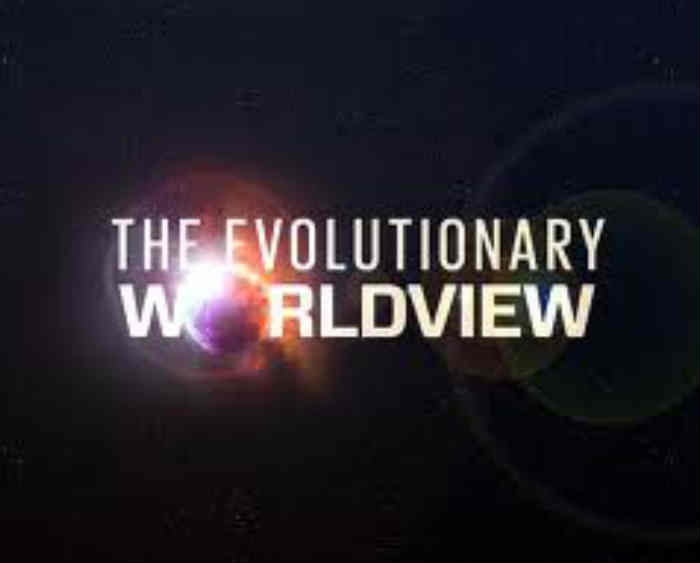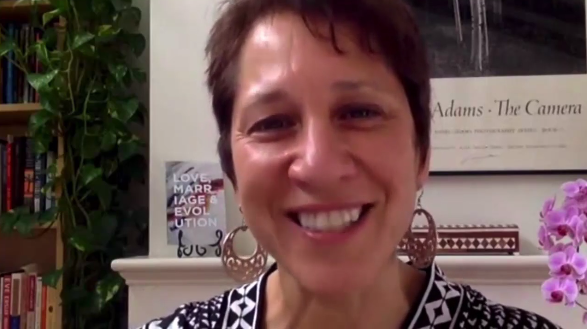How to Practice an Evolutionary Worldview
An En*Theos Class
One of the grandfather’s of an Evolutionary Worldview is the great visionary (and mystic) Alfred North Whitehead. He famously wrote,
“Philosophy begins in wonder. And, at the end, when philosophic thought has done its best, the wonder remains. There have been added, however, some grasp of the immensity of things, some purification of emotion by understanding.”
It is that wonder that a deep insight into process awakens in us.
Seeing the vast swath of time in which our world unfurled changes our sense of self. It redefines the contours of our philosophy. And it creates in us such a sense of awe and optimism that we truly see the world through new eyes.
As author Carter Phipps wrote in his book Evolutionaries,“It’s not hyperbole to say that how we think about evolution affects how we think about life, the universe, and everything.”
So what is an evolutionary worldview? How do we practice it? Where does it lead us? Can it change the world?
Let’s take a closer look:
The Top 10 Big Ideas
(Access Big Ideas #1-5 and watch a short clip from the class here)
6. Peer into the Future
As we’ve seen, the capacities of consciousness have evolved. If we can see back to earlier forms where capacities we have now we’re in their barest potential, that means there are capacities that haven’t been birthed yet. They haven’t unfurled their beauty yet but they will. Look forward to humans 45,000 years from now. They will have capacities of intuition, complexity, empathy, sensitivity, connection, and love that we have yet to discover. Consider this possibility. Allow your mind to rest at the edges of the known. Resist trying to imagine or understand. Allow the unknown future to be ahead of you, beckoning you towards it. Lean ever so slightly into it. Open to majesty we have yet to discover. Make yourself porous to the future. Ready for what we cannot yet imagine. Teilhard de Chardin said our future discovery of higher orders of harmony and integration, higher orders of Love will be as profound as human’s second discovery of fire. Let go into the wonder of that potential.
7. Make Yourself Ready
Being ready for the wonders of what has yet to come requires us to be coherent and integrated people. Like a rocket ship needs to be trim and tight, well configured to withstand the pressure and upheaval of breaking through the earth’s gravitational pull, so we need to cohere at the level of self. We need to smooth out the cracks we allow in our personalities, the things we know better but indulge in, I don’t mean that extra bite of ice cream, I’m referring to bad motive, meanness of spirit, vindictiveness, pettiness, charge. Those actions create cracks in the exoskeleton of our being. That will cause us to shake, rattle, and roll when we want to hold steady and reach through the known to a next order of interrelatedness, harmony, and love. How do you tighten up those weaknesses? By falling so much in love with a higher order of being that our lower impulses become as instinctively unattractive and passé as the social mores of the Vikings in the 8th Century.
8. Become an Archaeologist of Yourself
Look within. That Viking still lurks within us. We don’t act on their crude impulses anymore. But we are the stuff of our past. This is called Big History. Appreciating that just as Jerusalem is built, layer by layer, on cities before, so our we. Every archeological epoch has its own population. Its own currency. Its own fashion. Its own social customs, marriages, rites of passage, deaths. In our own being, even in our 21st Century times, we still have reactions and feelings that we can trace back to our reptilian brains. We carry the layers of our past. Not just our personal history, family experiences, cultural customs. We carry our deep past. Understanding the rich layers that make us up allow us to separate out the outdated responses, even when those responses are clothed in contemporary colors. As we understand and leave behind unnecessary, lower reactions, we transform. We become the stuff of cultural evolution—exactly as we are. Our transformation is the transformation of the culture around us. 1970s feminists coined the phrase, “the personal is the political.” In an evolutionary worldview, I’d say “the personal is the cultural.” Our transformation can become the actual evolution of consciousness.
9. Imagine an Anthropology of the Future
Can we really study the artifacts and culture of the future? Not exactly. Looking at the past teaches us much about where we’ve come from. We learn about emergence over deep time by exploring the formation of galaxies out of gases. We see the emergence of new life and the complexification of creatures by observing the wondrous diversity of nature. We learn about early civilization by studying single-celled organisms and the graceful cooperative as well as pioneering adventures of e-coli bacteria. (Yes, they indeed collaborate and also have scouts that break out and search for new habitats. Once new frontiers are conquered, others ecoli follow on their own wagon train. Go west young single-celled critter!) Take a leap in evolutionary time and look at us. A huge shift. Many similar principles. Now open yourself up to the possibility of anthropologists coming to study the artifacts of a future we can’t yet imagine. Not just the physical artifacts but the new orders of inter-relatedness. The new depths of sensitivity and compassion. The new understandings of nonduality with process itself. Can you feel it? The prickly excitement and anticipation of capacities we can’t yet imagine?
10. Commit to Transformation
An evolutionary worldview looks at the vast process of matter, life, consciousness, and values. Aligning ourselves with the deeper currents of development sets us in harmony with the movement of time, space, and energy. It integrates us with the biosphere, nature, the creatures around us, our human sisters and brothers. As we awaken to a more profound identification as process, we realize that as the Pali Canon says, all that is has arisen co-dependently. We are interconnected. Then the Talmud’s advice on difficult life questions, “to consider the effects of our choice down to the 10th generation” makes more practical sense. Our own commitment to a deeper integration of self, our own aspiration to evolve becomes imperative for these higher capacities of consciousness to emerge more perfectly through us. Commit to becoming porous, to opening the holes of ourselves, to allowing new vibrant new colors to emerge, which will shape our collective consciousness and paint the contours of the landscape we inhabit.

